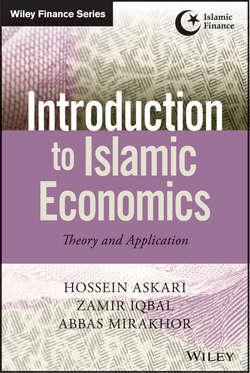Читать книгу Introduction to Islamic Economics - Mirakhor Abbas - Страница 12
На сайте Литреса книга снята с продажи.
Chapter 1
Economic Systems
Summary
ОглавлениеAn economic system covers the type of relationships among households, businesses, and government and the framework for producing, distributing, and consuming the goods and services produced in an economy. A critical dimension of the economic structure is the extent of government intervention, the role of markets and their regulation and supervision, the legal system of property rights, ownership of factors of production, and contracts and their enforcement. The basic issues to be addressed are what goods and services are produced and how and for whom they are produced. Although there are a number of ways to classify the range of economic systems, one classification could be traditional economies, market economies, mixed market economies, mixed socialist economies, and command (planned) economies.
Adam Smith is widely considered to be the father of the modern capitalist market system. The Great Depression and the imploding global economy shook up the economics profession. In response, Keynes put forward his book titled General Theory of Employment, Interest, and Money to provide some answers. A number of economists further developed the Keynesian approach in what came to be known as neo-Keynesian macroeconomics. Although the Keynesian theory of demand management has become the most widely accepted macroeconomic framework, the Chicago school of economics later criticized it, largely on libertarian grounds and because it could not explain a number of observed economic developments in the 1970s and 1980s. These economists argued against discretionary macroeconomic policies in favor of the market's invisible hand and passive fiscal and monetary policies. In 2014, economists are even more divided about the effectiveness of Keynesian macroeconomic policies and the broader role of government intervention in economic management. There is no “pure” market economy in the world of 2014. There is a role for governments in any economic system to limit economic cycles and financial crises, to enhance growth, to develop a social safety net, and to safeguard the interests of future generations, interests that include preservation of the environment and provision of the social and legal infrastructure for efficient operation of a market system.
The Islamic economic system is a market-based system, where markets are seen as the best and most efficient mechanism for resource allocation. But valuing markets for their efficiency is not the same as upholding markets as an ideology and a philosophy. The foundations of the Islamic economic system were laid down in the Quran and practiced by the Prophet Muhammad (sawa) in Medina. These rules that were established by the Almighty are the basis for the Islamic system and provide the effective institutions for the ideal Islamic system.
